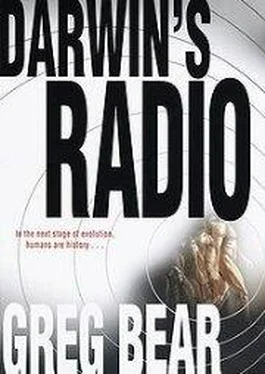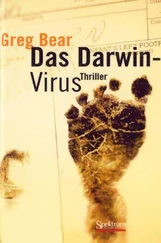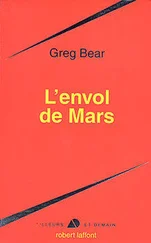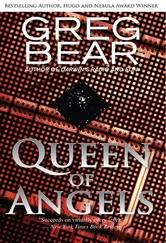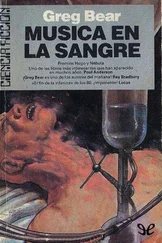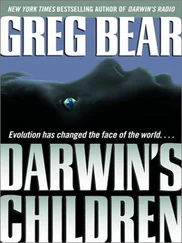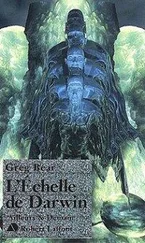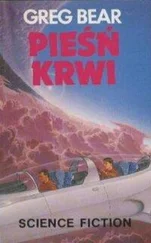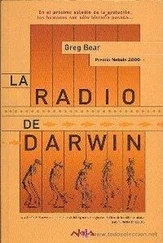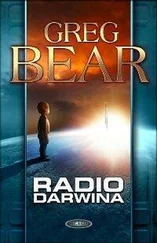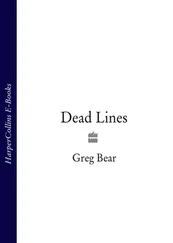“Now, young man,” Luria said, his eyes swimming behind their thick lenses. “Help us repair this damage you have done to the fabric of science. These mountains, where you were found, are not unfamiliar to us. Just one range over is where the real Iceman was found. There has been a lot of traffic through these mountains for thousands of years, a trade route perhaps, or paths followed by hunters.”
“I don’t think they were on any trade route,” Mitch said. “I think they were running away.”
Luria looked at his notes. The woman edged closer to the bed. “Two adults, in very good condition but for the female, with a wound of some sort in the abdomen.”
“A spear thrust,” Mitch said. The room fell silent for a moment.
“I have made some phone calls and talked to people who know you. I am told your father is coming here to take you from the hospital, and I have spoken with your mother—”
“Please get to the point, Professor,” Mitch said.
Luria raised his eyebrows and shuffled his papers. “I am told you were a very fine scientist, conscientious, an expert at arranging and carrying out meticulous digs. You found the skeleton known as Pasco man. When Native Americans protested and claimed Pasco man as one of their ancestors, you removed the bones from their site.”
“To protect them. They had washed out of a bank and were on the shore of the river. The Indians wanted to put them back in the ground. The bones were too important to science. I couldn’t let that happen.”
Luria leaned forward. “I believe Pasco man died from an infected spear wound in his thigh, did he not?”
“He may have,” Mitch said.
“You have a nose for ancient tragedies,” Luria said, scratching his ear with a finger.
“Life was pretty hard back then.”
Luria nodded agreement. “Here in Europe, when we find a skeleton, there are no such problems.” He smiled at his colleagues. “We have no respect for our dead — dig them up, put them on display, charge tourists to see them. So this for us is not necessarily a big black mark, though it seems to have ended your relationship with your institution.”
“Political correctness,” Mitch said, trying to keep the acid out of his tone.
“Possibly. I am willing to listen to a man with your experience — but, Doctor Rafelson, to our chagrin, you have described a rather gross unlikelihood.” Luria pointed his pen at Mitch. “What part of your story is lie, and what part truth?”
“Why should I lie?” Mitch asked. “My life is already shot to hell.”
“Perhaps to keep a hand in the science? Not to be separated so quickly from Dame Anthropology?”
Mitch smiled ruefully. “Maybe I’d do that,” he said. “But I wouldn’t make up a story this crazy . The man and woman in the cave had distinct Neandertal characteristics.”
“On what criteria do you base your identification?” Brock asked, entering the conversation for the first time.
“Dr. Brock is an expert on Neandertals,” Luria said respectfully.
Mitch described the bodies slowly and carefully. He could close his eyes and see them as if they floated just over the bed.
“You are aware that different researchers use different criteria for describing so-called Neandertals,” Brock said. “Early, late, middle, from different regions, gracile or robust, perhaps different racial groups within the subspecies. Sometimes the distinctions are such that an observer might be misled.”
“These were not Homo sapiens sapiens? Mitch poured himself a glass of water, offered to pour more glasses. Luria and the woman accepted. Brock shook his head.
“Well, if they are found, we can resolve this matter easily enough. I am curious as to your timeline on human evolution—”
“I’m not dogmatic,” Mitch said.
Luria waggled his head — comme ci, comme fa — and turned some pages of notes under. “Clara, please hand me the biggest book there. I’ve marked some photographs and charts, where you might have been before you were found. Do any of these look familiar?”
Mitch took the book and propped it open awkwardly on his lap. The pictures were bright, clear, beautiful. Most had been shot in full daylight with blue skies. He looked at the marked pages and shook his head. “I don’t see a frozen waterfall.”
“No guide knows of a frozen waterfall anywhere near the serac, or indeed along the main mass of the glacier. Perhaps you can give us some other clue…”
Mitch shook his head. “I would if I could, Professor.”
Luria folded his papers decisively. “I think you are a sincere young man, perhaps even a good scientist. I will tell you one thing, if you do not go talking to papers or TV Agreed?”
“I have no reason to talk to them.”
“The baby was born dead or severely injured. The back of her head is broken, perhaps by the thrust of a fire-hardened pointed stick.”
Her. The infant had been a girl. For some reason, this shook Mitch deeply. He took another sip of water. All the emotion of his present position, the death ofTilde and Franco…The sadness of this ancient story. His eyes watered, threatened to spill over. “Sorry,” he said, and dabbed away the moisture with the sleeve of his gown.
Luria observed sympathetically. “This lends your story some credibility, no? But…” The professor lifted his hand and pointed at the ceiling, jabbing slightly, and concluding, “Still hard to believe.”
“The infant most definitely isn’t Homo sapiens neander-talensis,” Brock said. “She has interesting features, but she is modern in all particulars. Not, however, particularly European. More Anatolian, even Turkic, but that is just a guess for now. And I know of no specimens of that sort so recent. It would be incredible.”
“I must have dreamed it,” Mitch said, looking away.
Luria shrugged. “When you are well, would you be willing to walk the glacier with us, look for the cave again in person?”
Mitch did not hesitate. “Of course,” he said.
“I will try to arrange it. But for now—” Luria glanced down at Mitch’s leg.
“At least four months,” he said.
“Not a good time to be climbing, four months from now. In the late spring, then, next year.” Luria stood, and the woman, Clara, took his glass and hers and set them on Mitch’s tray.
“Thank you,” Brock said. “I hope you are right, Dr. Rafelson. It would be a marvelous find.”
They bowed slightly, formally, as they left.
12
The Centers for Disease Control and Prevention, Atlanta
SEPTEMBER
“Virgin females don’t get our flu,” Dicken said, looking up from the papers and graphs on his desk. “Is that what you’re telling me?” He raised his black eyebrows until his broad forehead was a dubious washboard of wrinkles.
Jane Salter reached forward to plump the documents again, nervous, laying them with a solicitous finality on his desk. The concrete walls of his subbasement office enlivened the rustling sound.
Many of the offices in the lower floors of Building 1 of the Centers for Disease Control and Prevention had been converted from animal labs and holding cells. Concrete dikes jutted up near the walls. Dicken sometimes imagined he could still smell the disinfectant and monkey shit.
“That’s the biggest surprise that I can pull out of the data,” Salter confirmed. She was one of the best statisticians they had, a whiz with the variety of desktop computers that did most of their tracking, modeling, and record-keeping. “Men sometimes get it, or test positive for it, but are asymptomatic. They become vectors for females, but probably not for other males. And…” She finger-tapped a drum roll on the desktop. “We can’t get anyone to infect themselves.”
Читать дальше
Конец ознакомительного отрывка
Купить книгу
